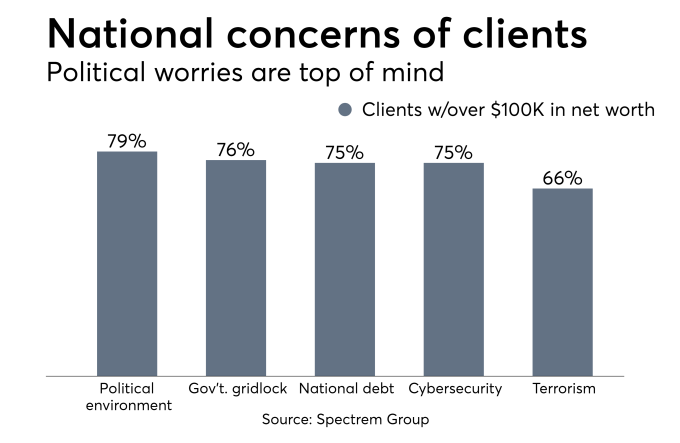Today’s blog post is political and the opinions express here within are mine, and mine alone.
A few months ago, a fellow young financial advisor reached out to tell me how much they appreciated my political commentary on social media. They went on to tell me that they wished they could do the same but feared that it would put them in a tough spot with not just their firm, but with clients as well. Their kind words encouraged me to keep sharing my views publicly, but it also reminded of how difficult it is for so many of my colleagues to express themselves in a similar way.
During the 2016 election, I had posted something abrasive about, then candidate, Trump on Facebook. Shortly after posting it, an old friend from high school left a comment saying that, perhaps, some of my clients wound not appreciate what I had said. While I didn’t share my friend’s political point of view, he wasn’t wrong.
Indeed, what if a client with a differing point of view read my comment? I am positive they would not have appreciated something like what I said coming from their financial planner. It likely would have disrupted our professional relationship (one that’s generally apolitical and rooted in objectivity) and could have easily been the trigger for firing me as their planner.
As I thought about my friend’s comment, I could feel the back of my neck starting to get sweaty as anxiety started to creep in. What have I done?! However, before my nerves could get the best of me, resulting in my deleting the comment, I realized two important things. One, I didn’t really have any clients who supported that candidate and two, I was more than okay letting anyone who was offended by remarks like that walk out the door. In being true to myself, and in knowing, what I want my business to look like five, ten or even twenty years down the road I was comfortable with this decision.
RELATED: The Dangers of Mixing Investments with Politics
AD: Planners don’t typically trade, but when they do they use the right tools for the job. Investors Business Daily Can help.
Again, it’s not lost on me how fortunate I am to be able to be able to freely express myself and choose who I work with. For me, it’s a luxury to blend my personal and professional life together in almost everything that I do. It is just part of the perks that come with working for yourself, wanting clients rather than needing them and purposefully building a practice around like-minded individuals (don’t call it a niche). Yes, lucky me, but unfortunately, this is not the case for most of my colleagues, especially younger planners, who are likely working for someone else and with clients stemming from all walks of life.
What makes navigating politics as a financial planner so difficult is the fact that we build deep interpersonal relationships with our clients. We’re at the center of their lives. When you mix that with how polarizing politics have become, it’s easy to find yourself in an uncomfortable and unavoidable position. On top of that, clients want to know how events in Washington could affect their finances. According to the Spectrum Group, the current political environment ranks high up on the list of client concerns. So, it seems that no matter how hard you try, planners must talk politics, whether they like it or not.

Other than walking the proverbial political tightrope, I don’t know if there’s much that can be done for planners who’ve already established their practices or are in the process of acquiring practices as part of their growth strategy. Toeing the line will continue to be that much more difficult than it was just two years ago, and taking too strong a stance one way or the other could be costly. The same can also be said for younger planners who don’t (yet) call their own shots.
However, when it comes to younger planners, there’s one big difference. This is the opportunity to further define who it is you want to work with and, if it’s practical, who you want to work for. I fully understand how difficult it is to get started in the profession and, to be clear, I am not suggesting that anyone who’s ramping up the business turn down a client or leave their firms because of politics. However, I am saying that, in light of all this political chaos, now might be a good time to further define want you want for yourself professionally and figure out who’s hand you want to hold in the long-run.
What do you think? Should financial planners stay far, far away from politics? Is there something for us to gain from voicing our opinion or s this a zero-sum gain? Feel free to join the conversation on Twitter. You can follow me @dougboneparth.
